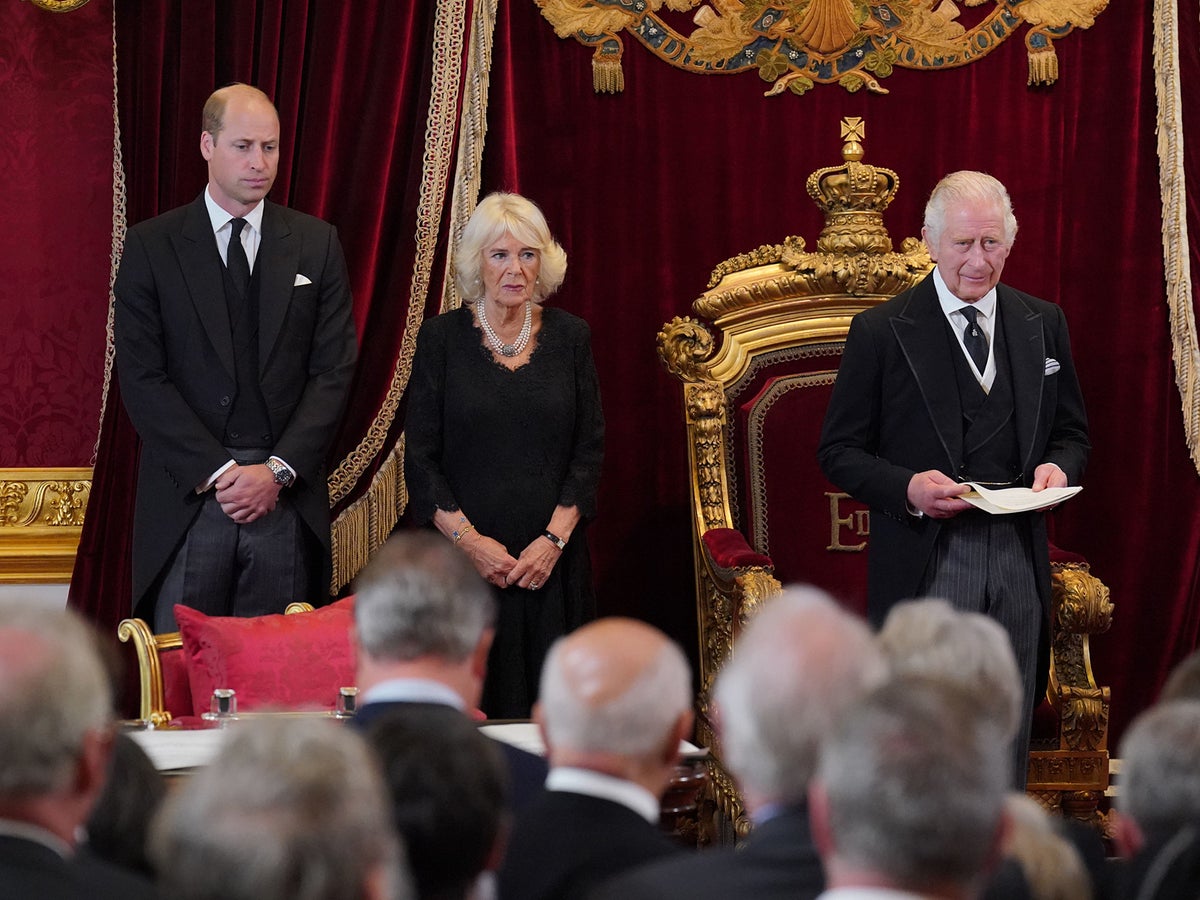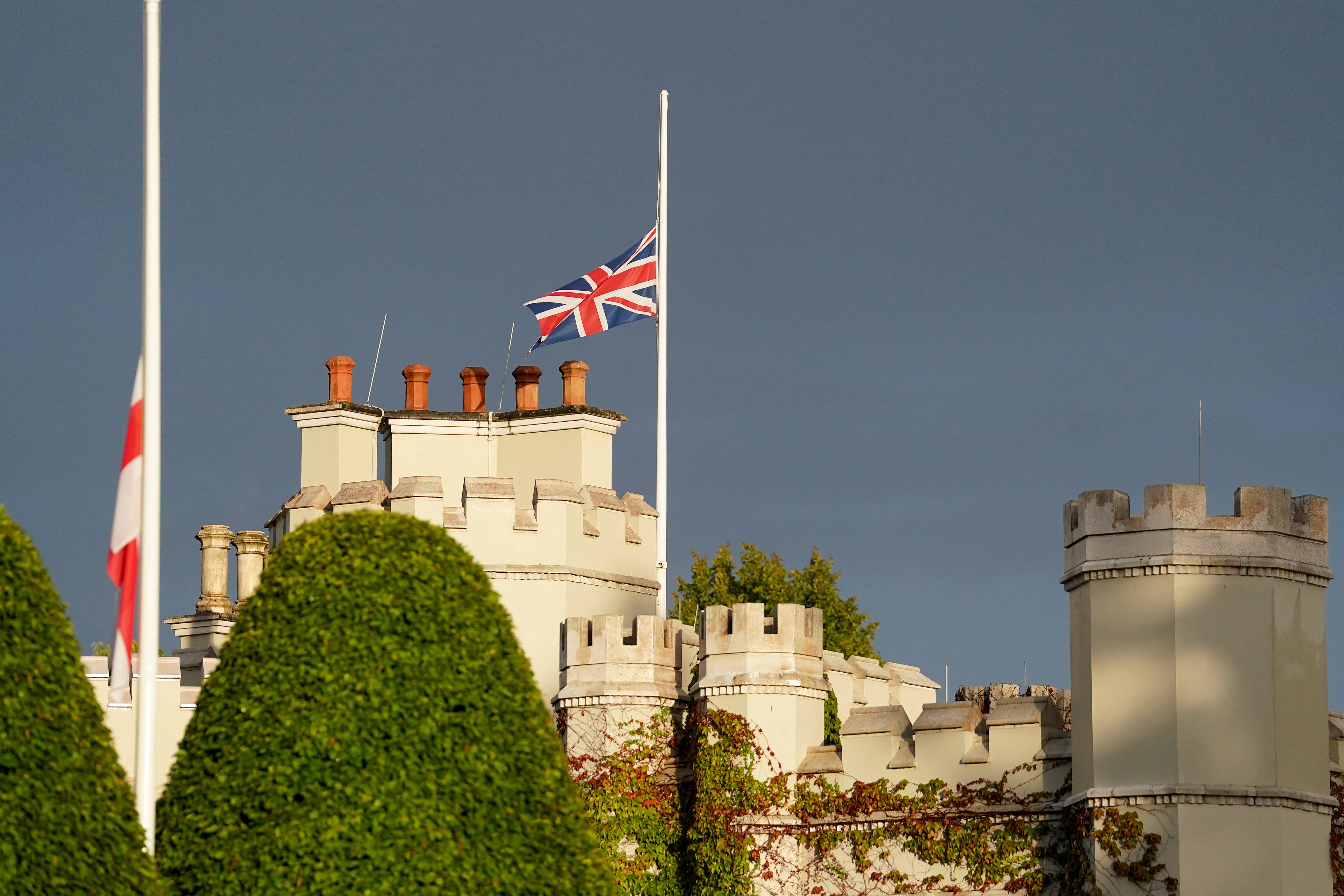
The day of the Queen’s state funeral on Monday 19 September is to be a bank holiday, it has been announced.
The one-off holiday was formally approved by King Charles III at his first meeting with the Privy Council in St James’s Palace in London.
Acting Lord President of the Council Penny Mordaunt read out two draft proclamations appointing the day as a bank holiday in England, Wales and Northern Ireland and in Scotland.
Charles responded with the single word “Approved” before signing the proclamations.
The move means that schools, businesses, government offices and many shops will close for the day, allowing the maximum number of possible people to watch the funeral.
The procedure for events in the wake of the monarch’s death is set out in a strict set of protocols codenamed Operation London Bridge.
Under this plan, the Queen’s coffin will be taken in procession to Westminster Abbey on a gun carriage, pulled not by horses but by naval ratings – sailors – using ropes.

Senior members of the royal family will follow behind on foot, just as they did for the funerals of Diana, Princess of Wales and the Duke of Edinburgh.
Heads of state, prime ministers and presidents, European royals and key figures from public life will be invited to gather in the abbey, which can hold a congregation of 2,000. US President Joe Biden has confirmed that he will attend.
The service will be televised, and a national two minutes’ silence is expected to be held.
Following the funeral, the Queen’s coffin will be taken to St George’s Chapel at Windsor Castle for a televised committal service.
There are usually eight annual bank holidays for workers in England and Wales, while those in Scotland normally get nine or 1.
There was an additional bank holiday earlier this year on Friday 3 June to mark the Queen’s Platinum Jubilee.
The new bank holiday was announced moments after Charles was formally proclaimed King at the accession council ceremony.
Following the proclamation in Charles’s absence in the palace’s picture gallery, around 200 members of the privy council trooped into the throne room for their first meeting with the new monarch.
In a declaration to the council, Charles vowed to follow the “inspiring example” of Elizabeth II in his service to the nation “for what remains to me of my life”.
Standing before the royal throne in the palace’s Throne Room, Charles spoke of the “irreparable loss” to himself, his family, the United Kingdom, the Commonwealth and the whole world represented by the death of his mother.

“It is the greatest consolation to me to know the sympathy expressed by so many to me, my sister and brothers,” he said.
In recognition of the new King’s reign, official flags were raised to full mast for Proclamation Day before being returned to half-mast until the end of the Royal Mourning period.
Charles’s speech was his second as monarch, following a televised address to the nation on Friday, in which he named his elder son William Prince of Wales and sent a message of “love” to his younger son Prince Harry and his wife Meghan .
Paying tribute to his late mother, he said then: “I speak to you today with feelings of profound sorrow. Throughout her life, Her Majesty The Queen – my beloved Mother – was an inspiration and example to me and to all my family, and we owe her the most heartfelt debt any family can owe to their mother; for her love, affection, guidance, understanding and example.”
He ended with a heartfelt tribute to the Queen, bringing tears to the eyes of many of those watching.
“To my darling Mama, as you begin your last great journey to join my dear late Papa, I want simply to say this: thank you,” he said.
“Thank you for your love and devotion to our family and to the family of nations you have served so diligently all these years.”
In today’s address, he hailed Elizabeth’s example of ”lifelong love and selfless service”, he said he was “deeply aware of this great inheritance and the duties and heavy responsibilities of sovereignty which have now passed to me”.
He added: “In taking up these responsibilities, I shall strive to follow the inspiring example I have been set in upholding constitutional government and to seek the peace, harmony and prosperity of the peoples of these islands and in the Commonwealth realms and territories throughout the world.”
Charles also formally renounced financial revenues from the Crown estate, in return for the sovereign grant from the government to support him in his duties.







